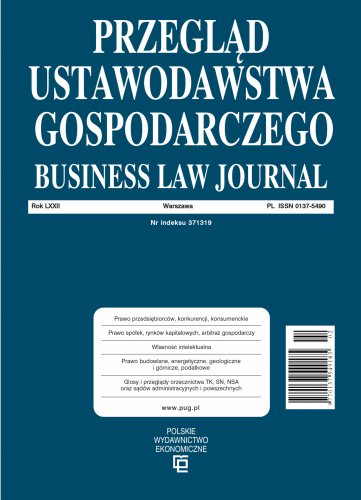Journal of Business Law 02/2021
ISSN: 0137-5490
Pages: 60
Publication date: 2021
Place publication: Warszawa
Binding: paperback
Format: A4
Publication date: 2021
Place publication: Warszawa
Binding: paperback
Format: A4
DOI: 10.33226/0137-5490.2021.2.1
JEL: A12, D18, D21, K20
DOI: 10.33226/0137-5490.2021.2.2
JEL: K24
DOI: 10.33226/0137-5490.2021.2.3
JEL: G21, K15
DOI: 10.33226/0137-5490.2021.2.4
JEL: H25, K34, M41
DOI: 10.33226/0137-5490.2021.2.5
JEL: K30, M14
DOI: 10.33226/0137-5490.2021.2.6
JEL: K22
DOI: 10.33226/0137-5490.2021.2.7
JEL: K20
| Odbiór osobisty | 0 € |
| Kurier Inpost | 4 € |
| Kurier FedEX | 4 € |
| Inpost Paczkomaty | 4 € |
| Free delivery in Reader's Club | from 47 € |

